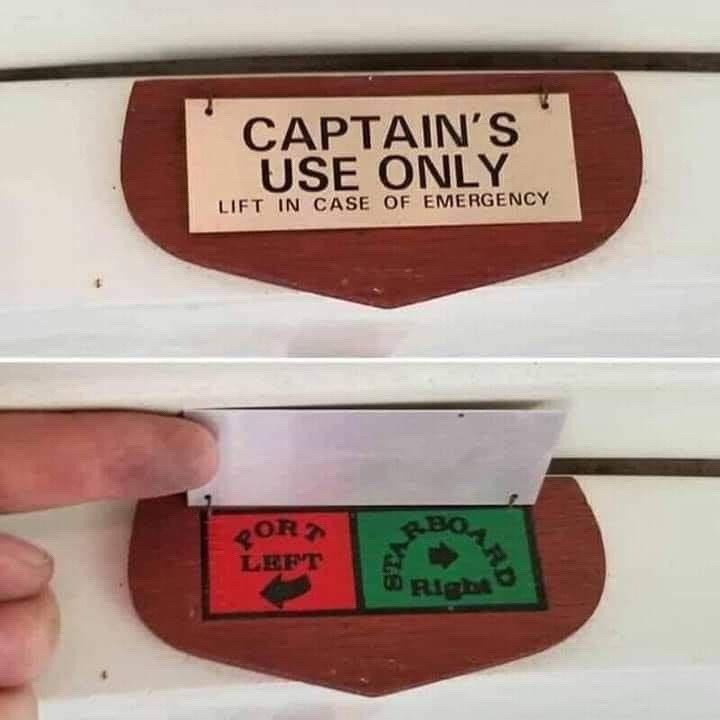782
this post was submitted on 06 Oct 2023
782 points (98.9% liked)
Funny: Home of the Haha
5478 readers
2 users here now
Welcome to /c/funny, a place for all your humorous and amusing content.
Looking for mods! Send an application to Stamets!
Our Rules:
-
Keep it civil. We're all people here. Be respectful to one another.
-
No sexism, racism, homophobia, transphobia or any other flavor of bigotry. I should not need to explain this one.
-
Try not to repost anything posted within the past month. Beyond that, go for it. Not everyone is on every site all the time.
Other Communities:
-
/c/[email protected] - Star Trek chat, memes and shitposts
-
/c/[email protected] - General memes
founded 1 year ago
MODERATORS
you are viewing a single comment's thread
view the rest of the comments
view the rest of the comments

Historically, boats had rudders (or “steer boards”) along the side of the ship instead of in the middle like we’d see them today. It was always on the right side of the boat, so to avoid smashing your rudder into the dock, you’d dock your ship on the other side. That means it was always the left side that literally faced the port, while starboard faced out into open water to protect that side from damage.
TIL about steer boards, thanks!
Same!
The "board" part comes from "side of a ship", as in "the board where the steer is attached".
Same meaning as in "going over-board".
Steer board => star board?
Correct. Sailors aren’t known for their diction lol
Maybe. Others have said that when in port the starboard side of the ship is where you would see start out at sea - the port side facing the bright city.
A lot of this is partially lost to history and a guess. I am not enough of a historian to know what the truth is.
"From Middle English sterbord, stere-bourd, stere-burd, from Old English stēorbord, from Proto-West Germanic *steurubord, equivalent to steer + board (“side (of a ship)”), referring to ancient ships with the steering oar set to the right (to accommodate right-handed crew)"
https://en.m.wiktionary.org/wiki/starboard
Port used to be larboard. I'm sure that wasn't at all confusing.
whaat.
This makes so much sense.